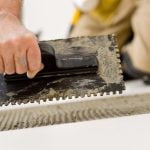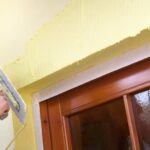How do I deduct home improvements on my taxes? When it comes to home improvement expenses, many homeowners wonder about the tax implications of their renovation projects. Understanding what qualifies as a home improvement expense and how it differs from regular maintenance is crucial for maximizing potential tax benefits. From tax deductions to eligibility criteria, this article aims to provide a comprehensive guide on deducting home improvements on taxes.
Home improvement expenses encompass a wide range of projects, from upgrading your kitchen to adding an extra room. It’s important to differentiate these types of expenses from regular maintenance costs, such as fixing a leaky faucet or painting a room. While maintenance expenses are not eligible for tax deductions, certain home improvement expenses may qualify for tax benefits.
Beyond the aesthetic and functional improvements made to your home, there are potential tax benefits associated with these projects. Understanding the types of tax deductions available for home improvements can help homeowners take full advantage of the financial incentives provided by the government. From energy-efficient upgrades to accessibility modifications, various types of home improvement expenses can result in valuable tax savings.
Tax Benefits of Home Improvement Expenses
When it comes to deducting home improvement expenses on your taxes, it is important to understand the potential tax benefits that may apply. One of the key benefits is the ability to lower your taxable income by claiming deductions for eligible home improvement expenses. These deductions can reduce the amount of income on which you are taxed, potentially resulting in a lower tax bill.
Types of Tax Deductions:
There are different types of tax deductions available for home improvements, and they can vary based on factors such as the nature of the improvement and the intended use of the property. One common form of deduction is the home mortgage interest deduction, which allows you to deduct interest paid on a loan used to finance the renovation or improvement of your home.
Additionally, certain energy-efficient home improvements may qualify for tax credits, providing a dollar-for-dollar reduction in your tax liability.
Another form of deduction is the medical expense deduction if a home improvement is made for medical reasons. For example, if you make modifications to your home to accommodate a disability or illness, those expenses could potentially be deducted as medical expenses on your taxes. However, it’s important to keep in mind that specific criteria must be met in order to qualify for these deductions.
In order to take advantage of these potential tax benefits, it’s essential for homeowners to familiarize themselves with the eligibility criteria for deducting home improvements and ensure that they maintain accurate records and documentation related to their improvement projects.
| Tax Deduction Type | Description |
|---|---|
| Home Mortgage Interest Deduction | Deduct interest paid on a loan used to finance home renovations |
| Energy-Efficient Improvements Tax Credits | Qualify for credits for energy-efficient upgrades |
| Medical Expense Deduction | Deduct expenses related to accommodating disabilities or illnesses |
Eligibility Criteria for Deducting Home Improvements
When it comes to deducting home improvements on your taxes, it’s essential to understand the eligibility criteria for these deductions. Not all home improvement expenses can be claimed on your taxes, so it’s important to know what qualifies and what doesn’t.
Listing the Eligibility Criteria for Deducting Home Improvements on Taxes
To deduct home improvements on your taxes, the IRS requires that the expenses must add value to your home, prolong its useful life, or adapt it to new uses. This means that basic repairs and maintenance, such as fixing a leaky faucet or repainting a room, typically do not qualify as deductible home improvement expenses.
Providing Examples of Qualifying Home Improvement Projects
Examples of home improvement projects that may qualify for tax deductions include adding a new room, renovating a kitchen or bathroom, installing a new heating system, or upgrading the electrical wiring in your home. These types of projects are considered capital improvements and are more likely to meet the IRS’s criteria for deductible expenses.
Tips for Keeping Track of Expenses
It is crucial to keep detailed records of all expenses related to the home improvement projects. This includes receipts for materials and labor costs, as well as any permits obtained for the work. Having accurate documentation will be essential when claiming deductions and can serve as evidence in case of an IRS audit.
By understanding the eligibility criteria for deducting home improvements on your taxes and keeping thorough documentation of related expenses, you can maximize potential tax benefits while avoiding any issues with the IRS. If you have questions about specific projects or need personalized advice regarding tax deductions for home improvements, consulting a tax professional is highly recommended.
Keeping Track of Expenses
When it comes to deducting home improvement expenses on your taxes, keeping track of all the costs associated with your projects is crucial. But before diving into how to accurately track these expenses, it’s essential to understand what actually qualifies as a home improvement expense. Generally, any project that adds value to your home or prolongs its useful life can be considered a home improvement. This includes renovations, room additions, landscaping, and more.
Differentiating these improvements from regular maintenance expenses is also important. While fixing a leaky faucet or repainting a room are necessary for upkeep, they don’t necessarily increase the value of your home in the way a new kitchen or bathroom would. Understanding this distinction is key when determining what can be deducted on your taxes.
So, how do I deduct home improvements on my taxes? The first step is accurate record-keeping. Keeping receipts and documentation for all materials, labor costs, and permits is crucial. These will serve as evidence in case the IRS requests documentation for your deductions. Additionally, tracking any energy-efficient upgrades can also qualify you for specific tax credits.
Here’s a helpful tip: creating a dedicated folder or digital file for all home improvement-related receipts and invoices can help keep everything organized in one place. Whether you’re working with contractors or doing the improvements yourself, meticulous record-keeping will ensure you have everything you need come tax time.
| Home Improvement Expense | Example |
|---|---|
| New Roof | Replacing an old roof with a new one |
| Kitchen Renovation | Upgrading appliances and countertops |
| Landscaping | Installing a new patio or garden features |
Documentation Needed for Deductions
When it comes to deducting home improvements on your taxes, keeping accurate documentation is crucial. Without proper documentation, you may not be able to claim the deductions you’re entitled to, and in case of an IRS audit, you could find yourself in a difficult situation. Therefore, it’s important to understand what kind of documentation is needed for deducting home improvement expenses.
Checklist of Documents Needed
To claim deductions for home improvements on your taxes, you will need to provide various documents as evidence of the expenses incurred. This includes receipts for materials and labor costs, contracts or invoices from contractors, permits obtained for the work done, and any other relevant paperwork related to the home improvement project.
Importance of Documentation
The importance of proper documentation cannot be overstated when it comes to tax deductions for home improvements. The IRS may request proof of expenses claimed on your tax return, and without adequate documentation, your deductions may be disallowed. Keeping detailed records of all home improvement expenses is essential in order to substantiate your claims in case of an audit.
It’s also important to note that if you’re planning to sell your home in the future, having documentation of your home improvement expenses can be beneficial for calculating potential capital gains tax. Therefore, maintaining thorough and organized records is key not only for claiming deductions but also for future financial planning related to your property.
Limits and Restrictions
When it comes to deducting home improvements on your taxes, it’s important to be aware of any limits or restrictions that may apply. Understanding these limitations can help you maximize the tax benefits while staying within the rules set by the IRS.
Here are some key points to consider regarding limits and restrictions for deducting home improvement expenses:
- Limits on Deductible Expenses: Not all home improvement expenses may be fully deductible. The IRS may impose limits on the amount that can be deducted for certain types of home improvements. For example, there may be a cap on the amount of money that can be deducted for energy-efficient upgrades or solar panel installations.
- Restrictions on Specific Expenses: Some specific types of home improvement expenses may come with their own set of restrictions. For instance, luxury items such as swimming pools or outdoor kitchens may not qualify for tax deductions. It’s important to understand which expenses are restricted in order to avoid any issues with the IRS.
- Income-based Restrictions: In some cases, there may be income-based restrictions that limit the amount of home improvement expenses that can be deducted. Higher-income individuals or families may face limitations on their ability to claim certain deductions related to home improvements.
Being mindful of these limits and restrictions is crucial when planning and executing home improvement projects with the intention of claiming tax deductions. Consult a tax professional for personalized advice to ensure compliance with IRS regulations and maximize your tax benefits while avoiding any potential pitfalls.
As you plan for your next home improvement project, it’s essential to keep in mind how these limitations and restrictions might affect your ability to deduct expenses on your taxes.
Exceptions and Special Cases
When it comes to deducting home improvements on your taxes, there are certain exceptions and special cases that taxpayers should be aware of. These exceptions may impact the eligibility for tax deductions or the amount that can be deducted. It’s important to understand these special cases in order to accurately claim the tax benefits of home improvement expenses.
Here are some common exceptions and special cases to consider when deducting home improvements on your taxes:
- Energy-efficient home improvements: Certain energy-efficient home improvements such as installing solar panels or geothermal heat pumps may qualify for additional tax credits in addition to regular deductions.
- Home office expenses: If you use a portion of your home regularly and exclusively for business purposes, you may be eligible to deduct certain home improvement expenses related to that specific area.
- Casualty losses: In the event of a disaster or unexpected event that causes damage to your home, the costs of repairs and improvements related to those damages may be deductible under certain circumstances.
It’s crucial for taxpayers to understand how these exceptions and special cases apply to their own situation in order to maximize their tax benefits. Consulting with a tax professional can provide personalized guidance and ensure that all eligible deductions are claimed.
As with any tax-related matters, seeking professional advice is highly recommended. Each taxpayer’s situation is unique, and navigating through the complexities of tax laws regarding home improvement expenses can be challenging. A qualified tax professional can provide valuable insights and help individuals make informed decisions about deducting home improvements on their taxes. By seeking expert guidance, taxpayers can ensure compliance with IRS regulations while optimizing their potential tax benefits.
Seeking Professional Advice
In conclusion, understanding how to deduct home improvements on taxes can result in significant savings for homeowners. By differentiating between home improvement expenses and regular maintenance costs, individuals can take advantage of potential tax benefits.
The eligibility criteria for deducting home improvements may vary, but keeping track of all expenses, receipts, and documentation is crucial. Additionally, there may be limits or restrictions on the amount that can be deducted, as well as exceptions and special cases for specific types of home improvements.
It is important to emphasize the significance of seeking professional advice when it comes to deducting home improvements on taxes. Consulting a tax professional can provide personalized guidance tailored to individual circumstances and complex tax situations. Tax professionals have the expertise to navigate through any limits, restrictions, or exceptions related to home improvement deductions and can ensure that homeowners maximize their tax benefits while remaining compliant with IRS regulations.
Ultimately, by seeking professional assistance and staying informed about the eligibility criteria, proper documentation, and potential tax benefits of home improvement expenses, individuals can optimize their tax deductions. It’s important to stay organized by keeping track of all relevant documents and receipts throughout the year to avoid any complications during a potential IRS audit. With careful planning and expert advice from a tax professional, homeowners can effectively deduct their home improvements on taxes and achieve substantial financial savings.
Frequently Asked Questions
Can I Deduct Home Improvements on My Tax Return?
Home improvements typically cannot be deducted on your tax return, as they are considered personal expenses. However, if the improvement is an energy-efficient upgrade, you may qualify for a tax credit instead.
Is Homeowners Insurance Tax Deductible?
Generally, homeowners insurance is not tax deductible for personal primary residences. However, if part of your home is used for business purposes, you may be able to deduct a portion of your homeowners insurance.
What Happens if You Don’t Have Receipts for Capital Improvements?
If you don’t have receipts for capital improvements, it can make it challenging to prove the cost of the improvement for tax or resale purposes. It’s best to keep thorough records and receipts for all major home improvements to avoid this issue.

I’m thrilled to have you here as a part of the Remodeling Top community. This is where my journey as an architect and remodeling enthusiast intersects with your passion for transforming houses into dream homes.





